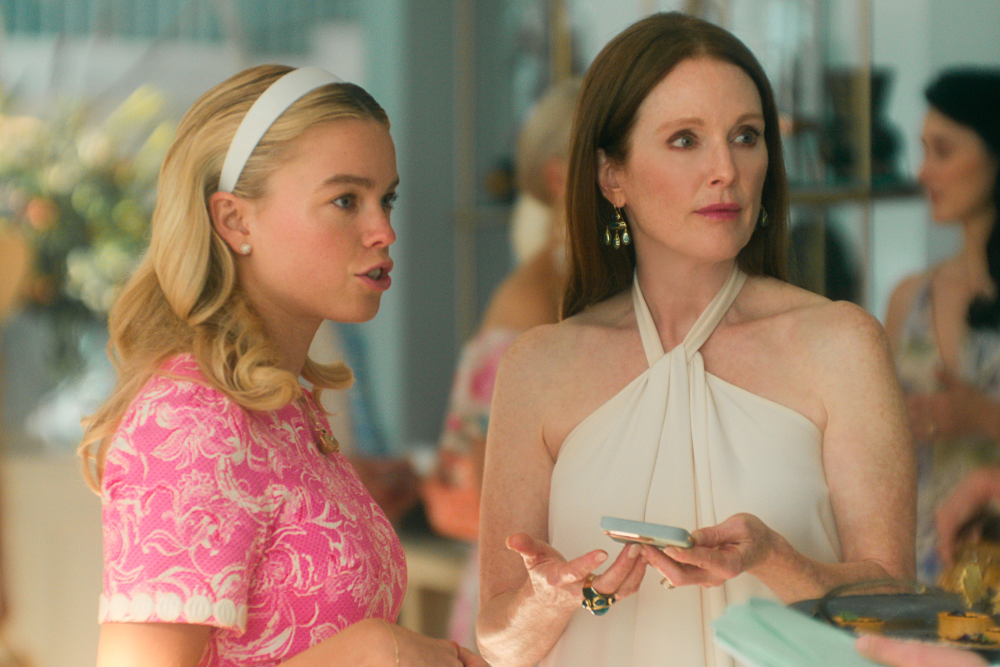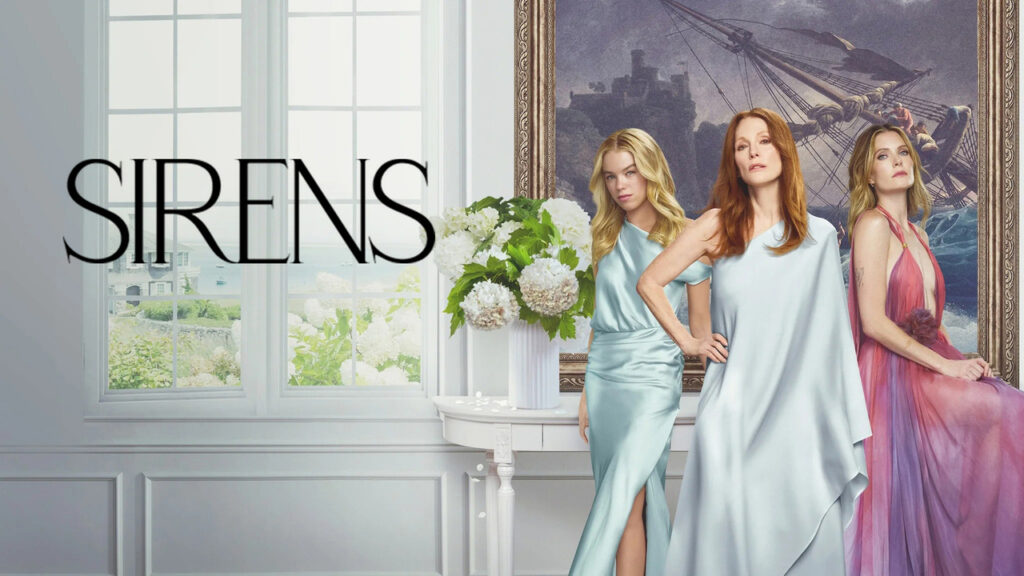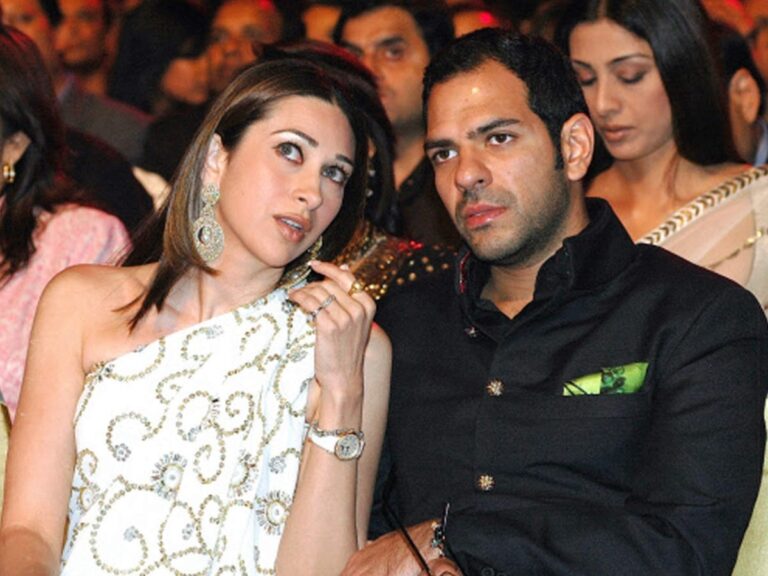
Michaela and Simone in 'Sirens' (Netflix)
Sirens 2025 is a captivating Netflix mini-drama series that holds viewers’ attention until the very last frame. Created by Molly Smith Metzler, this compelling show dives deep into powerful themes such as patriarchy, class, power, and manipulation. From its unsettling opening, Sirens 2025 sets an eerie atmosphere enhanced by evocative music, striking visuals, and sharp dialogue. Beneath this haunting surface, the series explores human nature, the weight of individual choices, and the forces that shape identity.
A Feminist Perspective
One of the most striking elements of Sirens 2025 is its powerful feminist social commentary. The series critiques the patriarchal structures that give men an unfair edge, while women like Simone, Michaela ‘Kiki’, and Devon must constantly fight for recognition and agency. A standout moment is Kiki’s cutting line: “We all work for Peter.” This single sentence encapsulates the deeply rooted male power dynamics dominating the narrative. The show carefully reveals how these women repeatedly suffer due to the decisions and control exerted by the men in their lives.
Initially portrayed as “sirens” (seductive and manipulative) the female characters are later revealed to be reacting to a system built to oppress them. Their choices are shaped more by survival under patriarchy than malicious intent. This nuanced reversal is a masterstroke in the show’s storytelling.

What Did the Audience Think?
At its core, Sirens 2025 is the story of Simone’s climb to power. She seizes a rare opportunity—at the cost of her best friend and former boss, Kiki. This act raises essential questions: Are Simone’s choices a betrayal, or an act of self-preservation? The series holds a 77% approval rating on Rotten Tomatoes, with viewers praising its performances and thematic depth. However, some felt the genre-blending – between drama, satire, and psychological tension created imbalance. Others noted that the show sometimes promised more than it delivered in terms of plot progression. There was also frustration over unanswered questions:
- What exactly is the “sirens’ code” between the sisters?
- Why does Barnaby break the window in distress?
- What happened after Michela’s cliffside encounter with Ethan?
These loose ends, along with the narrative’s frequent jumps, may leave some viewers confused about the show’s ultimate direction.
What You Might Have Missed in Sirens
1. Peter: The True Siren of the Story
The series subtly positions Peter as the real “siren”—manipulative, strategic, and ever-powerful. Through wealth, prenups, and shifting loyalties, he traps women in a cycle of emotional and financial control, all while maintaining a polished exterior.
2. The Island’s Visual Deception
The vibrant cinematography of the island serves as a facade. The brightness masks the island’s darker truths, mirroring how seduction often hides danger.
3. Mythological Layers and Gender Politics
Creator Metzler draws from Greek mythology, flipping the traditional siren narrative. Instead of blaming women, the show asks whether men are “crashing their own ships.” It challenges viewers to reconsider who the real monsters are in power dynamics.
4. Devon’s Transformation
Devon’s character arc is one of the most visually symbolic. Her costumes like the uncomfortable “fruit dress” represent her forced femininity. Gradually, she embraces her identity and power, echoing Ariel’s voice loss in The Little Mermaid as she reclaims her agency.
What’s the Verdict?
The cast delivers exceptional performances, particularly Julianne Moore, whose layered portrayal leaves you guessing whether she is the story’s actual siren. Meghann Fahy, Kevin Bacon, and Milly Alcock also shine in their respective roles. If you’re drawn to shows exploring dark themes, psychological depth, and mythological undertones, Sirens 2025 is worth your time. But if you’re expecting a traditional thriller, dark comedy, or supernatural twist, this isn’t the series for you.



